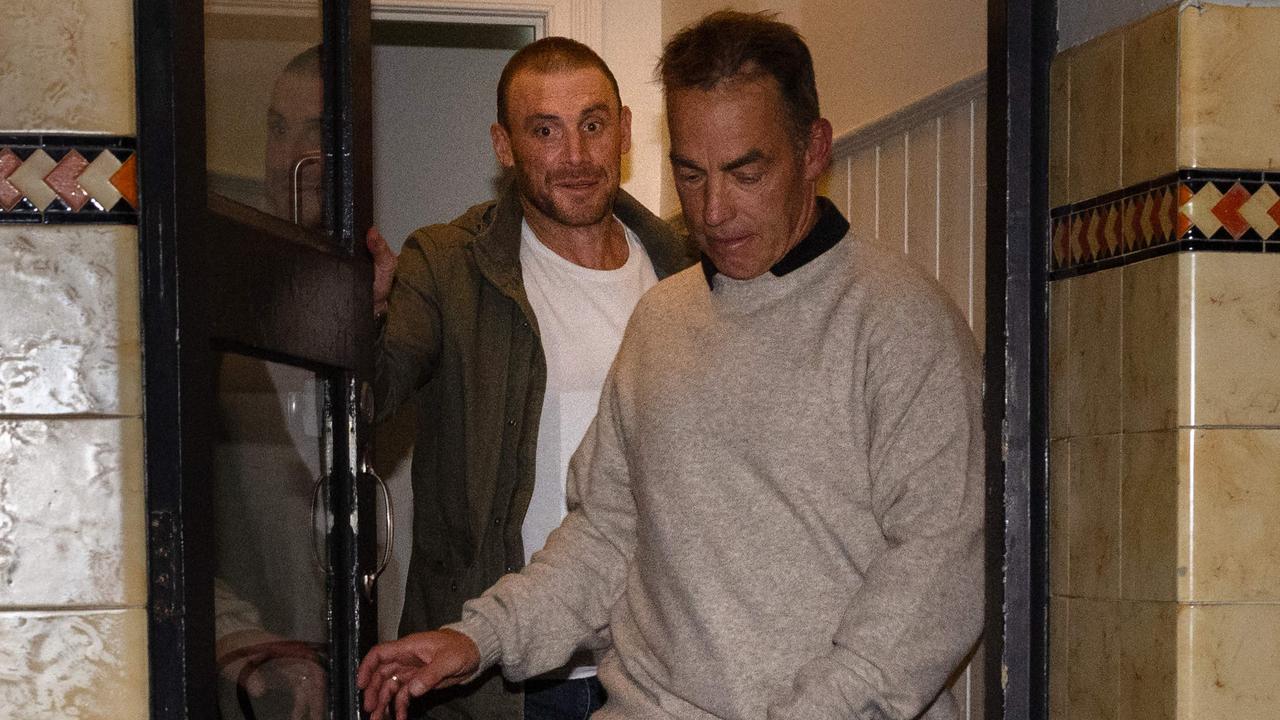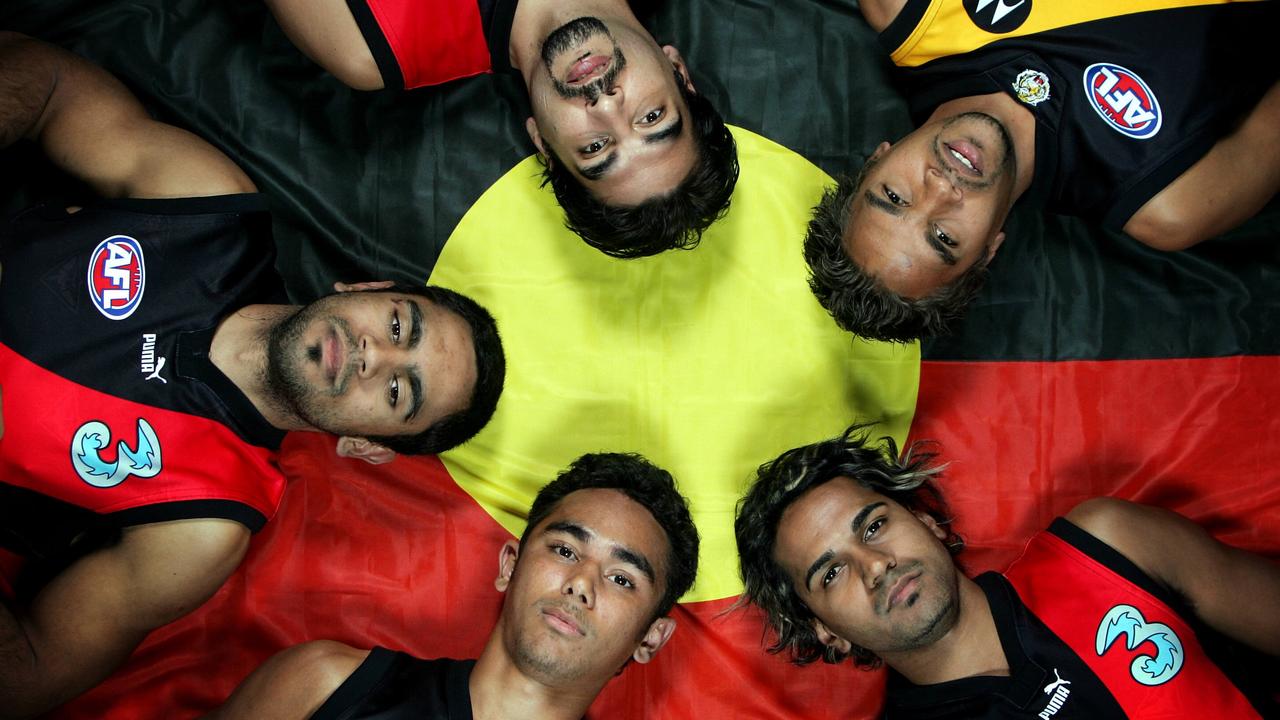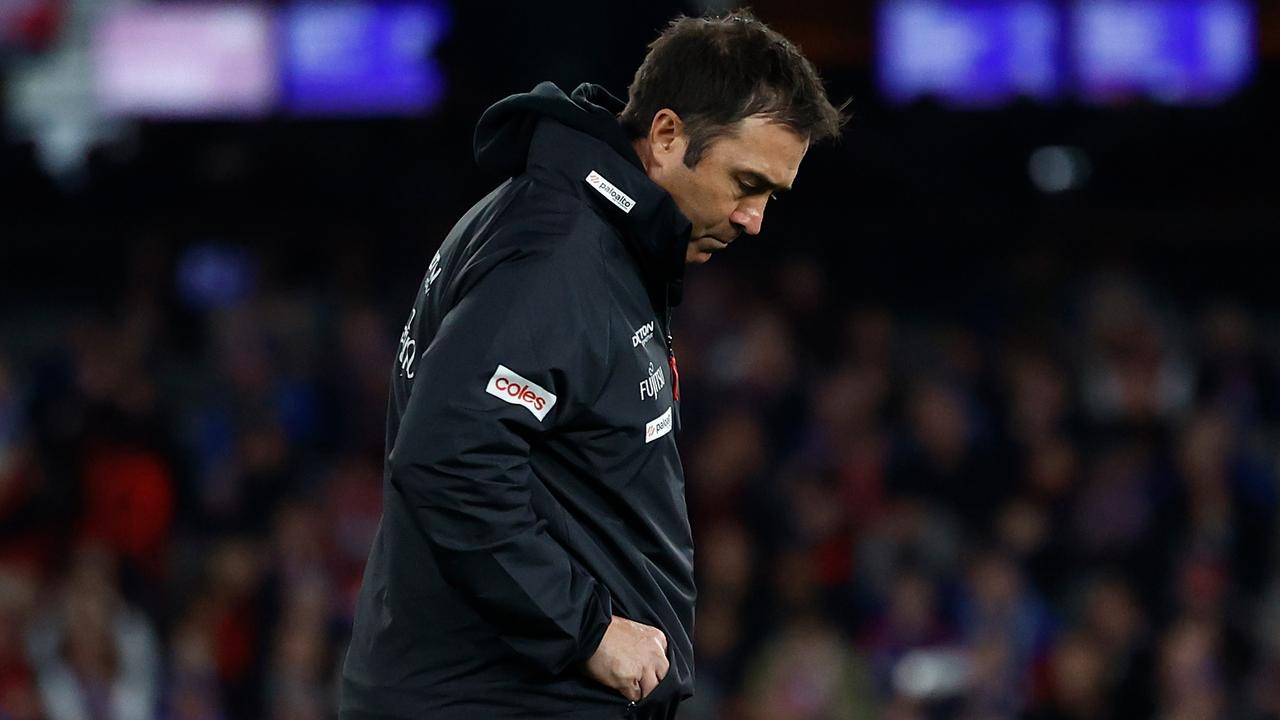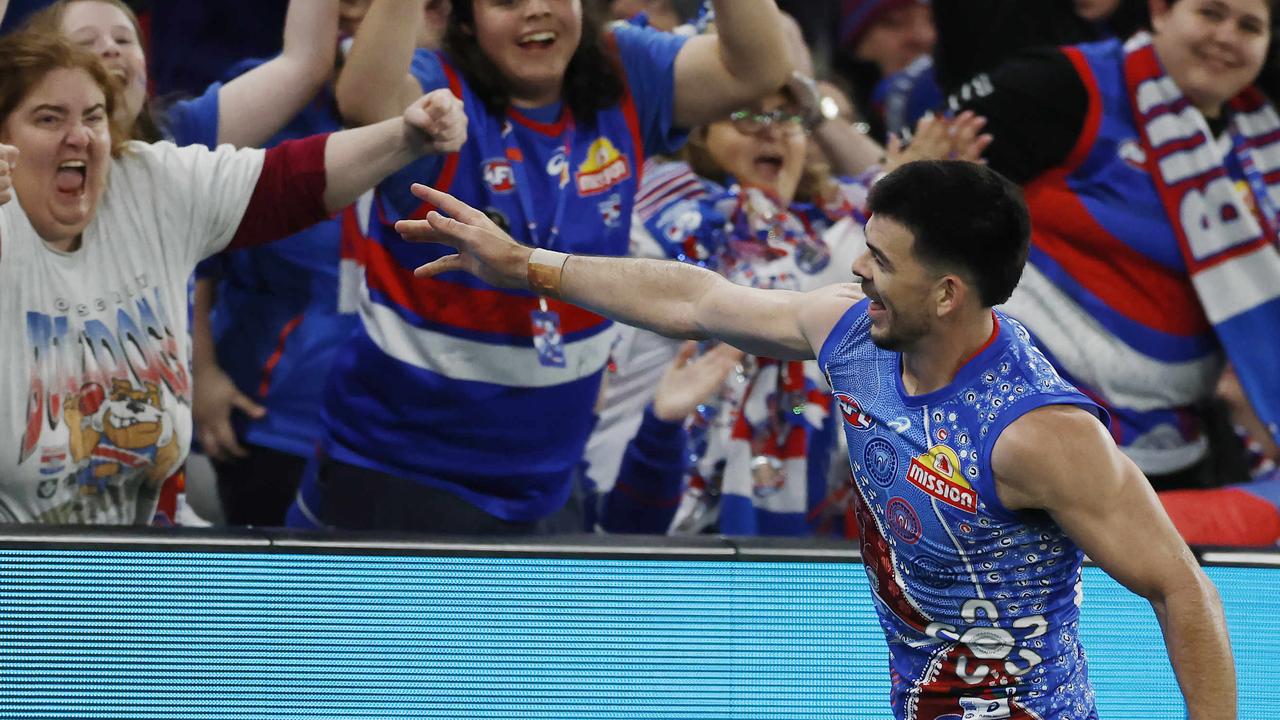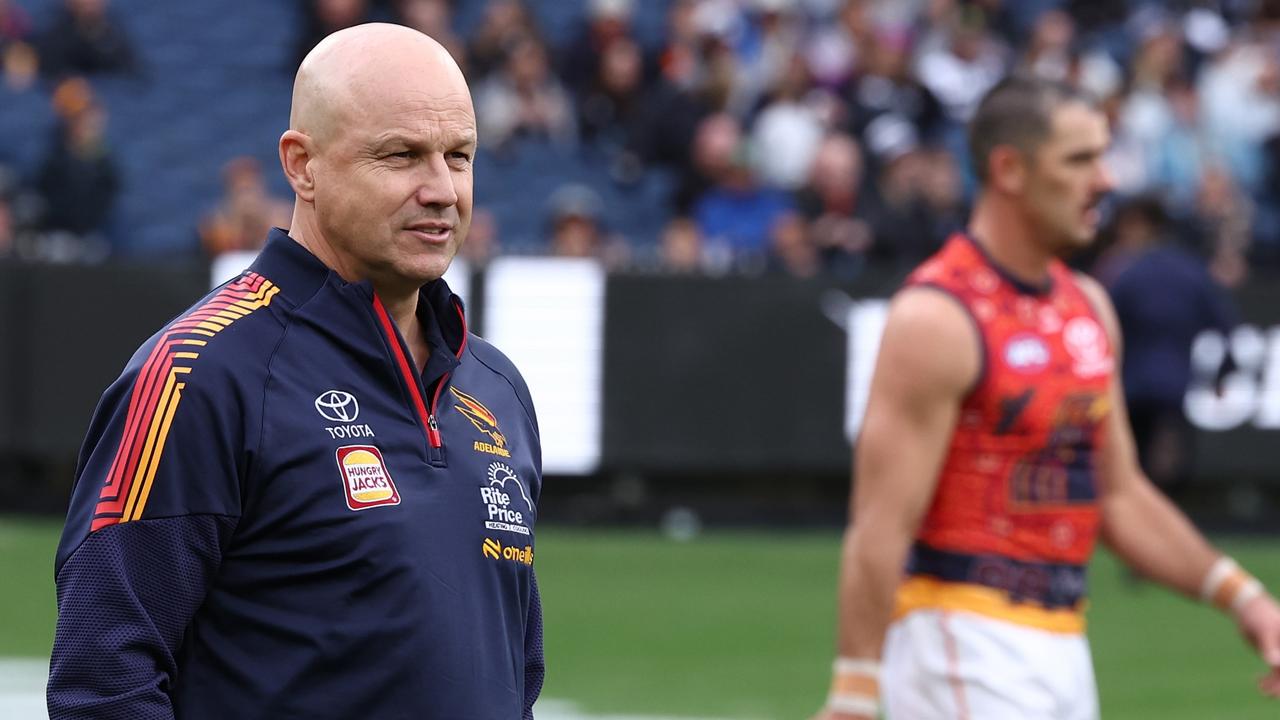The Bright Side: Jack Riewoldt opens up on Richmond’s difficult 2016 – on and off the field
Just about everything that could have gone wrong did go wrong for the Tigers in 2016. Jack Riewoldt opens up about the issues at the time and the calls he got trying to convince him to leave.
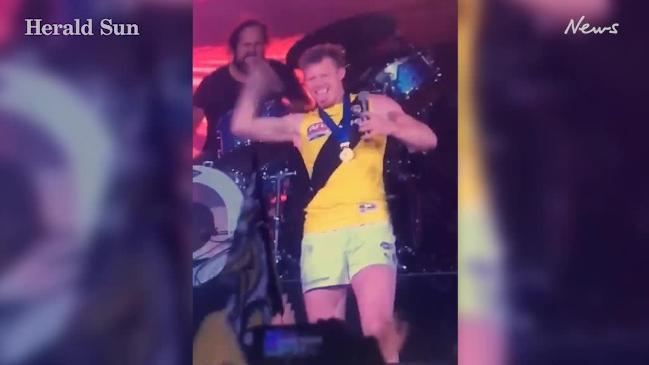
AFL
Don't miss out on the headlines from AFL. Followed categories will be added to My News.
In 2016 things went incredibly poorly, and incredibly fast. For the third year in a row we staggered through the early rounds. We were 1–6 after round seven, then we beat the Swans by a point at the MCG thanks to Sam Lloyd kicking a goal after the siren. We clawed our way back to 6–7 then fell away badly from there.
Nothing went right. Bachar Houli missed months of football through injury. Dylan Grimes was still struggling with his recurrent hamstring problems. Brett Deledio, who had been Mr Durable up until then, played only eleven games for the season. Our depth was tested and it didn’t hold up. Daniel Rioli, who had turned nineteen during the early weeks of the season, should have been eased into AFL footy by playing no more than a handful of games. Instead, he was called upon most weeks. Injuries are a legitimate explanation for a faltering team, but cited by one of its players, they never sound like anything more than an excuse.
Our struggles weren’t confined to the field either. Another developing problem was our leadership culture program, which was run by Gerard Murphy, who’d arrived at the club following the 2014 season. He introduced us to the type of feedback sessions that he’d used at Geelong to great effect. One person sat out the front of the group and everyone was invited to give them feedback on things they should ‘stop doing’, ‘start doing’ and ‘keep doing’.
Gerard had seen the exercise – one of a suite of offerings used by the group known as Leading Teams – work wonders. Gary Ablett Jr received an infamous dressing-down in 2006 when senior Cats savaged his work ethic. Apparently shaken by the serve, he went on to win three consecutive AFLPA MVP awards and two Brownlow Medals.
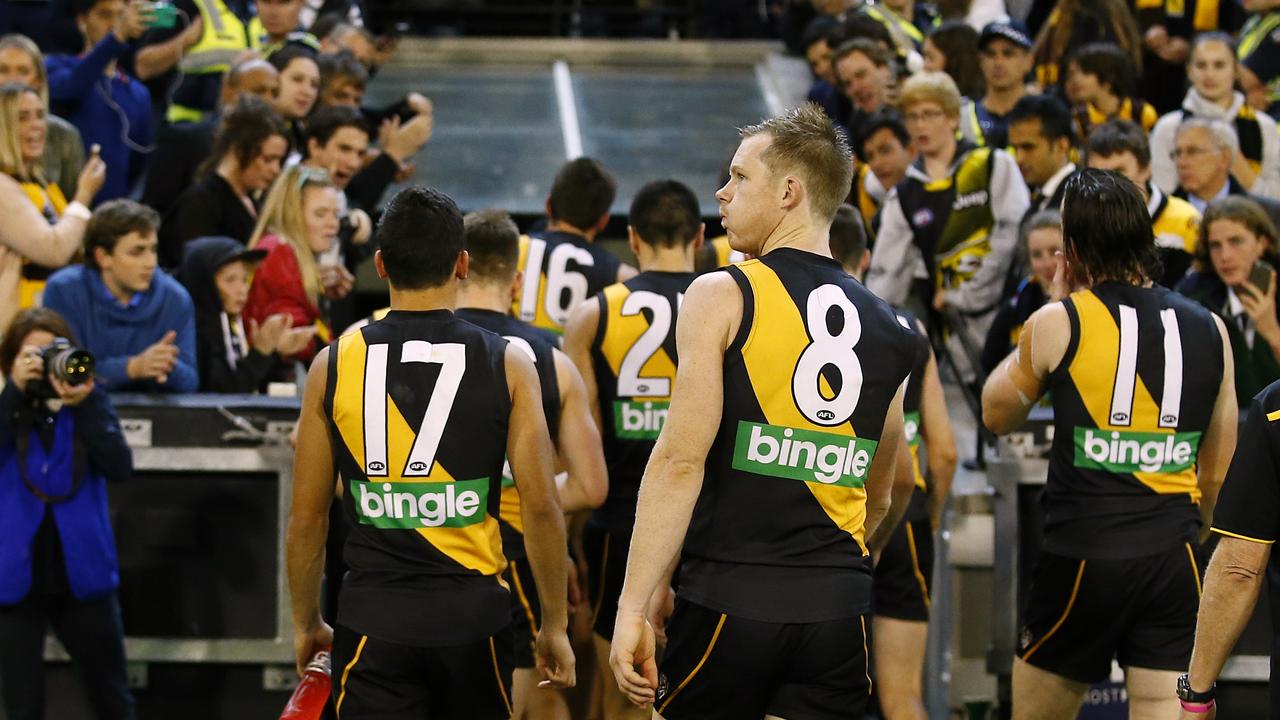
While the method is still used at several clubs, many others have stridently rejected it as giving players licence to bully and degrade. Whatever, it was a complete failure at Richmond.
The sessions opened the door to a kind of mob mentality. As humans, we’re programmed to go to negativity in difficult moments, and at Richmond at this time, it led to an outsized emphasis on what people needed to stop doing. Once a fortnight or so, a player would have to enter the auditorium, knowing that his teammates had been divided into groups to discuss and critique him.
It was my turn midway through 2016. I entered the room alone and sat on a stool in front of forty-three teammates, who’d gathered in private to list my shortcomings, as well as behaviours for me to add, keep or delete. They came up with words to describe me, and a seemingly never-ending list of feedback nuggets.
Stop speaking over others. Stop feeling the need to be the matchwinner, instead of just playing your role. Start critiquing your own game. Start finding solutions instead of pointing out problems. Start condensing your comments in meetings. ‘What you have to say is really important,’ said Alex Rance. ‘The first ten seconds of it, anyway. But then it loses impact the more the message goes on.’
Even though it was largely silent in the room, it felt noisy, because my mind was racing. They said I was trying too hard to be an individual – wearing the older Nike-branded gear to training, rather than the newer BLK apparel.
They wanted me to be more respectful in dealings with all people – and to watch my body language on the field. They said they wanted ‘consistency’, but I wasn’t sure what that meant, so I asked them, and Dylan Grimes answered. ‘We feel like one week in our personal relationship with you we love you and we’ll go to war with you,’ he said, ‘and the next week something will happen and it feels like we’re a piece of shit to you. It’s a bit of a rollercoaster.’
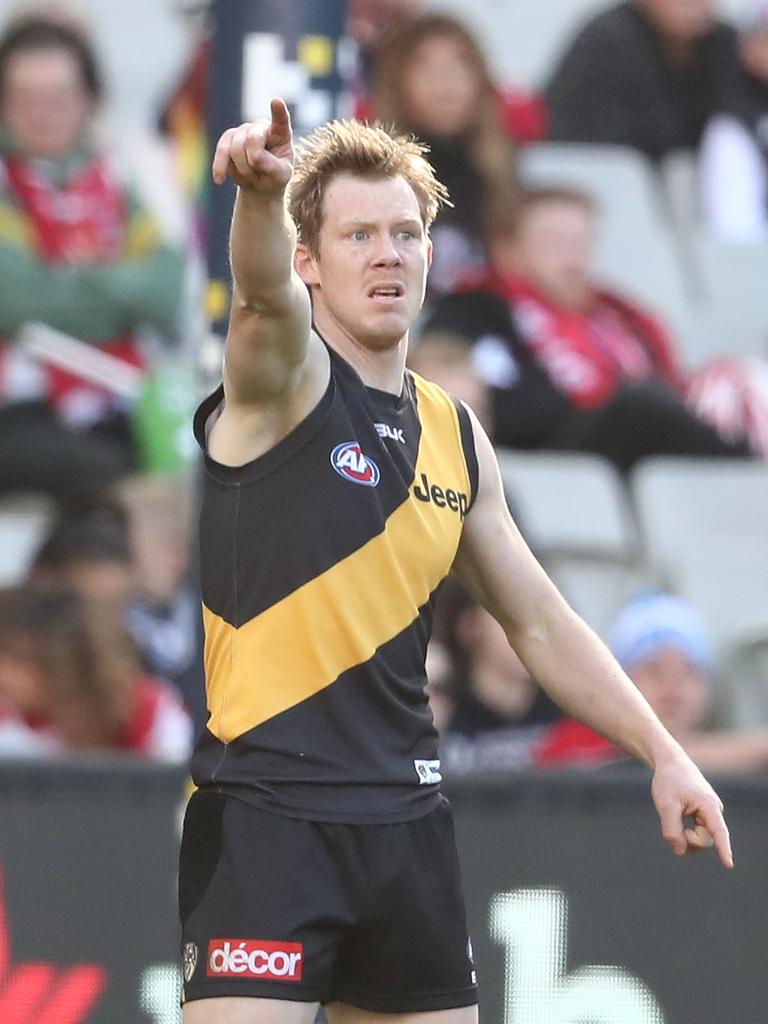
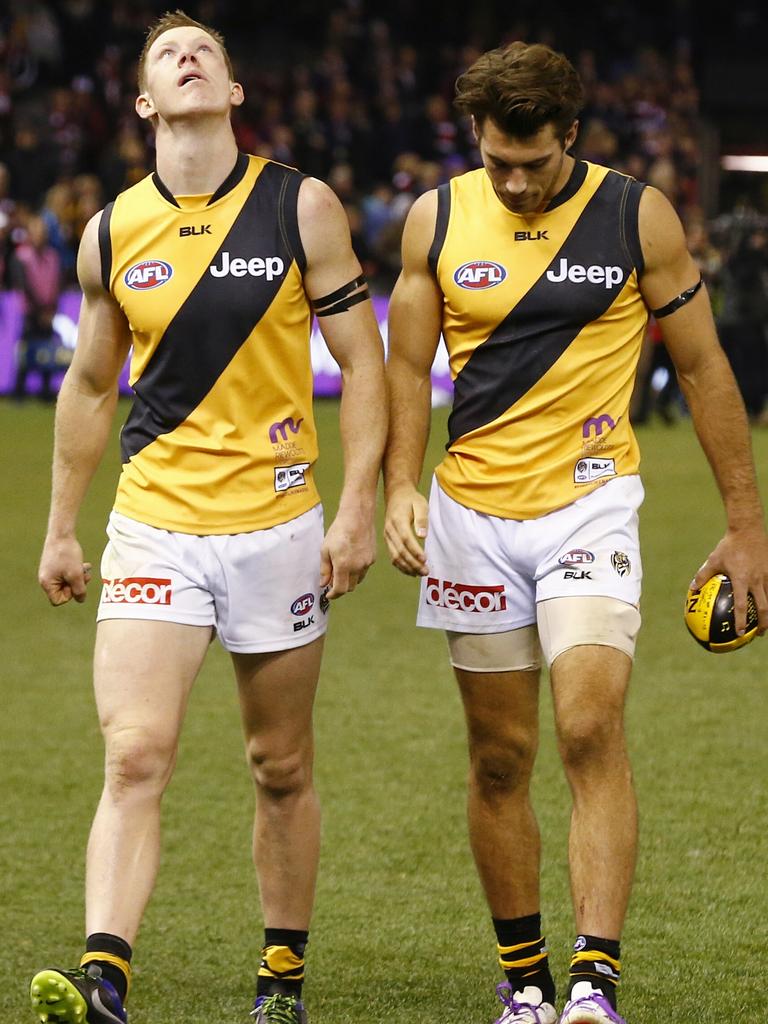
There were positive pointers, too. Keep asking questions and challenging the group. Keep educating forwards and backs by showing them your tricks. Keep showing interest and care for your teammates.
‘You’re really relatable now,’ said Rance. ‘Everyone loves spending time with you, and you show a lot of genuine care and a better connection.’
Steven Morris showed me some love: ‘Playing against you as the opposition in training, it just feels like you’re leading this increase in camaraderie in the forward-line group really, really well.’
Shane Edwards did, too: ‘More than half the time you’re the perfect leader,’ he said. ‘It won’t take long or much tinkering for you to be the most influential player here.’
We had so many kind and authentic people in my time at Richmond, but that feedback forum had a way of changing everyone. I can freely admit those sessions brought out the very worst in me. I dished out some terrible feedback, and I doubt any of it helped anyone. If anything, it tore holes in the fabric of the team psyche. I was senior enough to cope with the criticism, but young fringe players just trying to make their way? Such attacks must have been devastating.
We had a young key forward named Liam McBean, who was struggling at the time. Liam was told that he was weak over the ball – just weak in general. I hate to imagine how that must have felt to him alone up the front. Liam was delisted at the end of the 2016 season, having played just five AFL games. I look back now and it’s no wonder he didn’t succeed. He had no chance in an environment like that. Those sessions weren’t about constructive feedback. They were a pile-on.
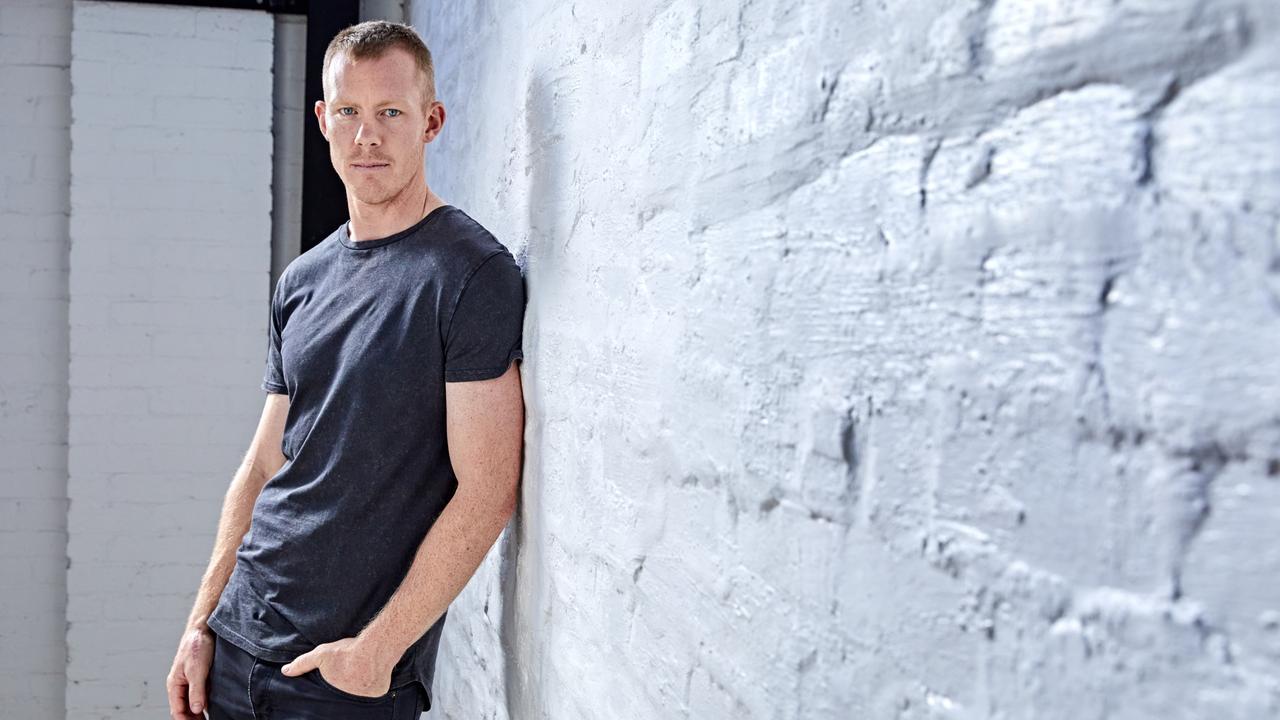
AFL clubs spend so much time thinking they can copy what’s been done at other clubs. I’m sure that’s what happened when we hired Gerard. His appointment as our leadership consultant was sold to us as a massive coup: the guru who had turned the Cats around was going to do the same thing for us.
Everyone became so infatuated with the idea that one man had the secret sauce that would automatically make us better leaders and better players, and it was bullshit. It back-fired spectacularly, and even spread into the rest of the club.
Instead of just players, our player development manager, Bronwyn Doig, a bubbly and enthusiastic young staff member, was put up in front of the group, too. Bron was the person who nurtured draftees and rookies when they first arrived at Punt Road, helping them acclimate and assimilate.
She was the person who helped you find lodging and bedding and transport. The person who made sure we all had adequate literacy and numeracy – that we knew how to pay our bills and had a plan for our careers (and our lives) after football.
Bron helped us develop and grow up as professionals and people. She rode with us in the back of the ambulance when we broke a leg or punctured a lung, and called our parents when things went wrong.
Bron felt she had to buy into the new cultural program, and was encouraged to sit up the front one day and receive her own barrage of ‘add-keep-delete’ feedback, framed as an opportunity for her to enhance her relationship with the list.
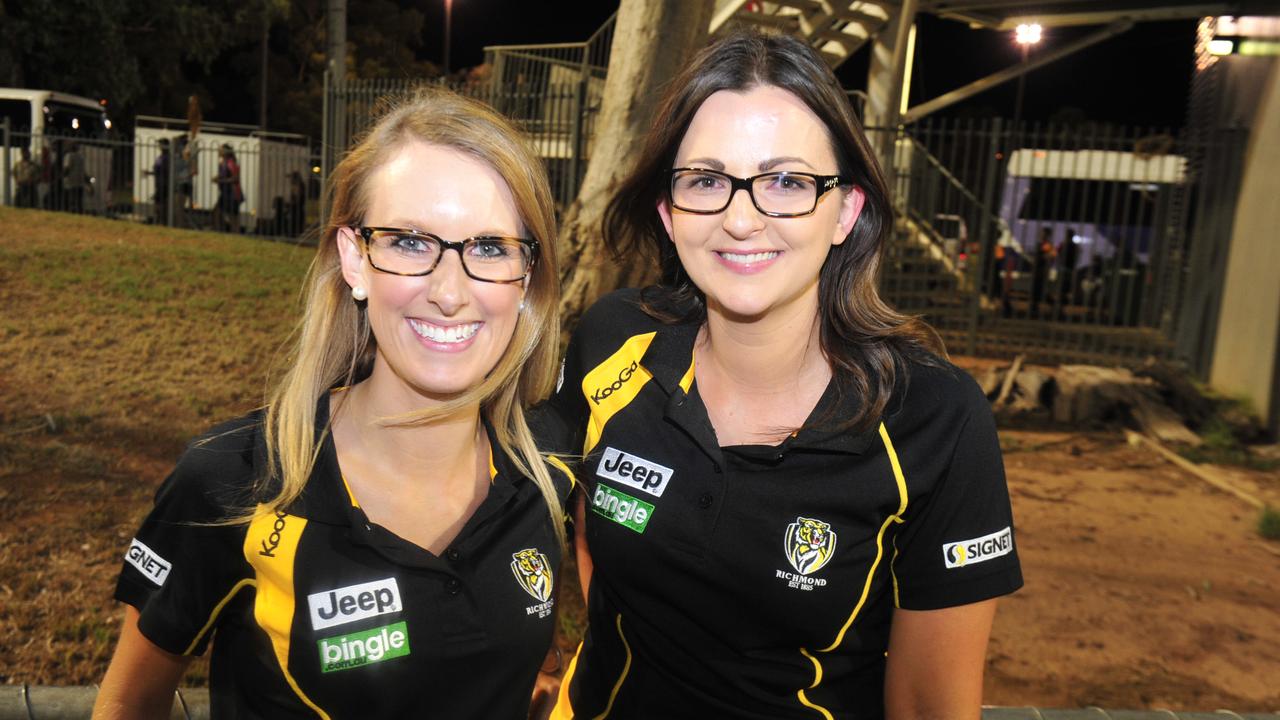
The criticism came – a laundry list of faults and deficiencies and limitations – and she listened and watched as the boys read from their critique sheets. Blindsided, gobsmacked and dumbfounded, Bron finally walked out. She left the club in tears that day – not over the judgemental things that had been said to her, but for not having had the courage to speak up and voice her concerns about the program.
Given all we now know about mental health, it’s a wonder the dangers of the blunt feedback approach weren’t raised immediately.
I wasn’t in the leadership group at that stage, but I’d had enough. I went to see Brendon Gale. ‘This isn’t working,’ I said. ‘This can’t go on.’
The playing group was told in July that Gerard was departing. He still works in this space. But the work he did with us was never the right fit for our group.
In a way, how poorly it worked almost became his parting gift. Richmond went through such turmoil that season that perhaps we worked out what we didn’t want to be as a club. Perhaps the first seeds of the fun, friendship and success that were yet to come were sown in those dark times.
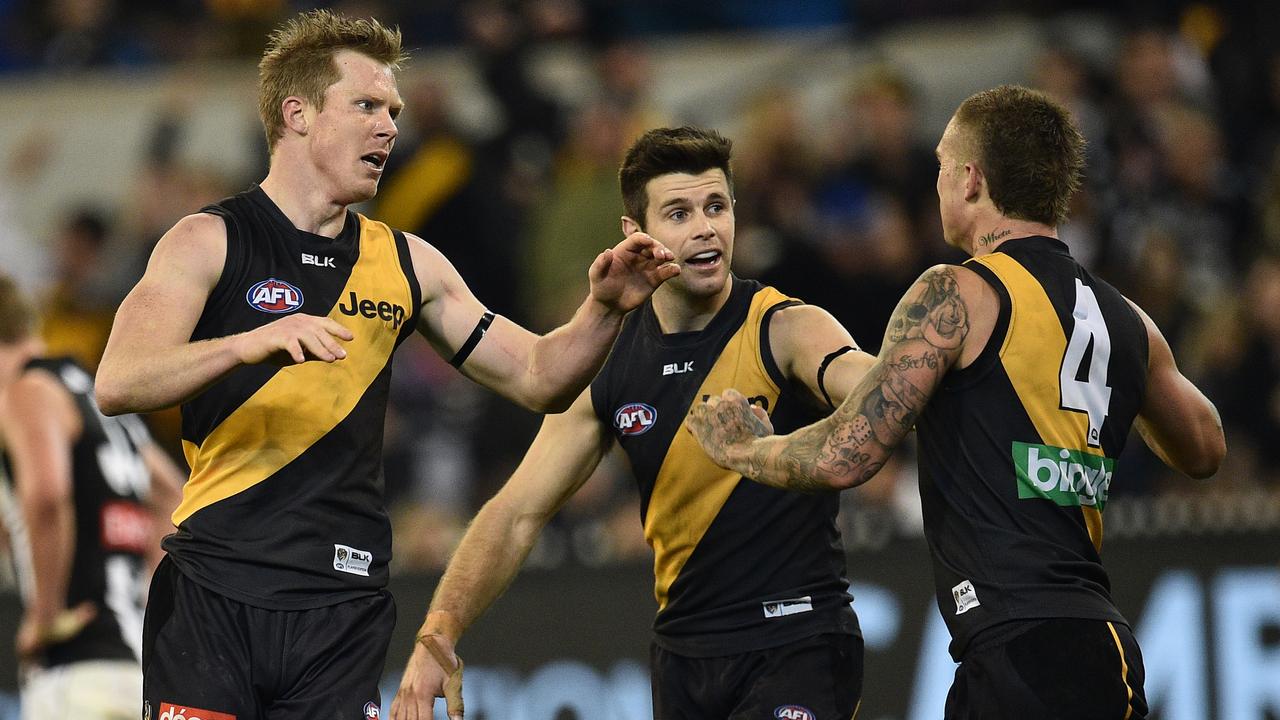
Another long off-season began, and legendary Richmond ruckman Neville Crowe died. Neville was famous not only for his work on the field in the 1960s; he later became Richmond president and led the Save Our Skins campaign that rescued the club in 1990.
His death thickened the pall that hung over Tigerland, a sense of doom magnified by the impending results of the Ernst & Young review of the football department.
Handed down on September 12, the key outcome was that Dimma kept his job, which was a massive relief, but several of his assistants were let go.
I asked my manager, Liam Pickering, what my options were, and he told me exactly what he was hearing: I was being thrown up as a trade option. I asked Richmond list manager, Blair Hartley, about it, and he said I wasn’t.
That same game of ducks and drakes plays out every year at every club, and it does make for a strange working life, with an odd kind of conditional trust. Regardless, the media had dubbed me as potential ‘trade bait’, and that has its own effect – plenty of clubs made inquiries based solely on the perception that I was gettable.
The Brisbane Lions came hard again. And the Bombers were unequivocal about their interest. One day, I was in the bedding section of Myer at Southland when my phone rang, and Essendon coach John Worsfold was on the other end. There I was, lying back on a nice new mattress, chatting to the coach of an arch-rival.
Brendon Goddard called later to give me a feeling for what was happening at the Bombers, doing his level best to see me swap a yellow sash for a red one.

Throughout it all I felt dirty – There’s just no way; I couldn’t, could I? – almost as if I were cheating. It was such a strange and disorientating period, and yet at the same time, I was by now mature enough to manage myself and have those grown-up conversations.
Over time, when enough deals have been put `to you, you learn how to talk about money, and identify your self-worth, and stand by your value without sounding like a wanker. You understand the salary cap, and how everybody in the side needs to be paid fairly. I knew when other players were coming off contract, and that what I asked for would impact what they got. I was never interested in any deal that would see my teammates ripped off.
I never came close to leaving Richmond. I couldn’t. It was ingrained in me to be loyal. Instead, I sat down with Trent Cotchin, who himself had had a big heart-to-heart chat with Dimma after Neville Crowe’s funeral, and we made the decision that we needed to stick by the club.
We had coffee at St Rose café in Essendon, and spoke about what we wanted our legacy to be. We wanted to leave the club in a better place than we found it, and that meant we needed to try and finish the job we’d started. Were we hopeful that we could compete for a premiership in the coming years? I don’t think so. We were just hoping we wouldn’t be shit. We were hoping the sun would come up the next day.
At the core of our conversation was an acceptance that Trent and I were most likely never going to win a premiership. Given that, we needed to invest our time in creating a great club, so that the likes of Daniel Rioli could taste the success that we would never enjoy.
This is an edited extract from Jack Riewoldt ‘The Bright Side’. ‘The Bright Side’ is out on November 1 through Simon & Schuster, RRP $49.99. You can meet him at a book signing event at 1pm, November 1 at The Avenue Bookstore, 91 Swan St, Richmond.
More Coverage
Originally published as The Bright Side: Jack Riewoldt opens up on Richmond’s difficult 2016 – on and off the field



